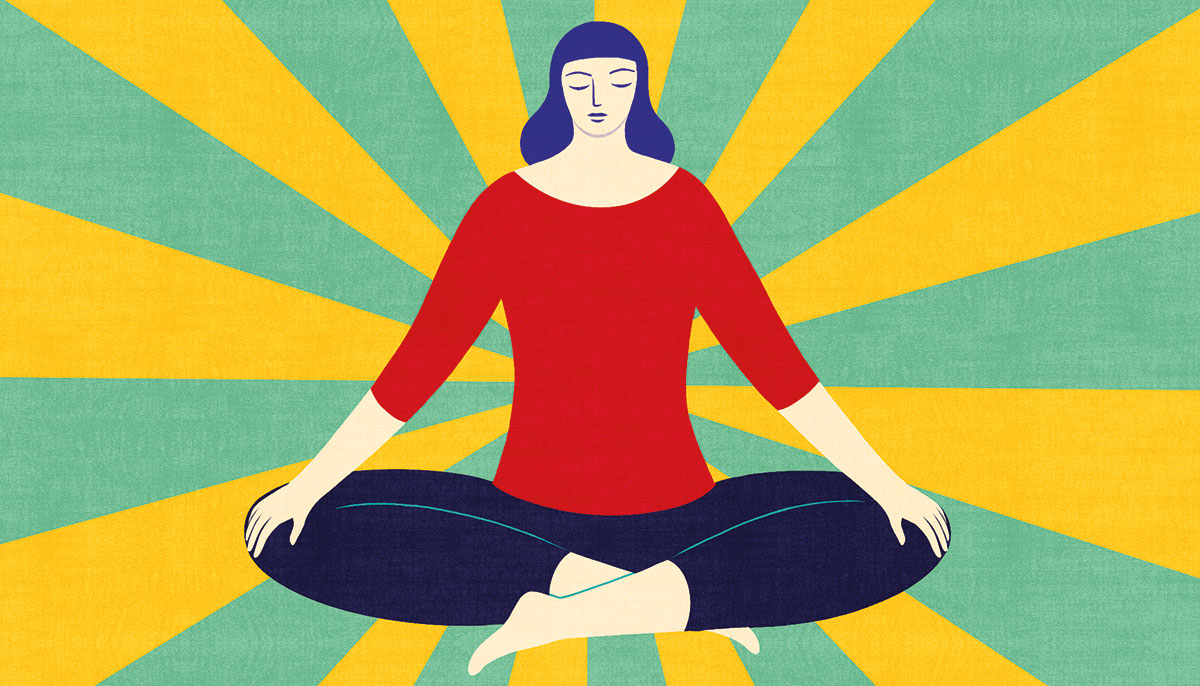Melvin Escobar teaches metta, a concentration practice to cultivate unconditional goodwill for all. In precarious times like these, it’s a way to listen to our hearts.
Precarious times like these call for us to be quiet and listen to our hearts. According to its etymology, the word “precarious” derives from the Latin prefix prec, which means “prayer.”
An especially potent form of prayer for times of crisis like these is metta. Metta is a Pali word that has been translated as loving-kindness, universal goodwill, or loving-friendliness. My favorite translation, which I learned from Vipassana teacher Anushka Fernandopulle, is “unstoppable friendliness.”
Tradition tells us that, like the sun, metta is always present and doesn’t discriminate. Metta is the heart of what are known as the four divine abodes, which include compassion, appreciative joy, and equanimity. As a prayer, metta offers an authentic experience of our interconnectedness.
Metta is a concentration practice to cultivate unconditional goodwill for all. It is practiced by reciting and contemplating a series of aspirations or prayers that express your goodwill and unstoppable friendliness toward yourself and others. With each recitation, you expand the scope of your loving-kindness—from yourself, to those close to you, to those for whom you feel antipathy, and finally to all sentient beings.
For guidance on metta practice, let’s look at some quotes from the Karaniya Metta Sutta, known in English as The Discourse on Loving-Kindness, in which the Buddha teaches metta as a simple and direct way to meet the moment as it is.
Wishing: In gladness and in safety,
May all beings be at ease.
phrase such as, “May I/you/all be free from inner and outer harm,” when repeated with genuine goodwill, cultivates a sense of calm acceptance of things as they are. When the mind is determined to reject what it cannot change, it can become caught up in forms of inner harm such as shaming, blaming, complaining, and explaining. In wishing for safety and ease for ourselves or others, we are more able to hold the reality of impermanence, and the first noble truth that there is no place where one can entirely escape suffering or harm.
Whatever living beings there may be… omitting none….
A common question that arises is: how do I practice with the most difficult person I can think of? Consider an analogy to weight lifting. It’s obvious that it would be unwise and possibly unsafe to start out lifting the heaviest weights. We must practice with lighter ones first. Likewise, we can harm ourselves by trying to practice metta with a very difficult person, if we haven’t developed the capacity to work with the aversion and despair that may arise. We must build capacity incrementally, starting with ourselves, a dear mentor, or any beloved being (a pet, a tree, a deity).
Let none deceive another,
Or despise any being in any state.
Most people agree that we should not lie to others or hate them. Metta practice can help us see how we lie to and feel hatred toward ourselves. Sharon Salzberg, meditation teacher and author of the seminal book, Lovingkindness, asked the Dalai Lama, “What do you think about self-hatred?” Confounded by her question, he replied, “Self-hatred? What is that?”
The self-hatred experienced by many in the West is actually a product of internalized oppression. The systems of oppression that bell hooks has called “imperialist white supremacist capitalist patriarchy” teach us that we are never enough, that we must constantly strive to be worthy of happiness. Phrases like, “May I love myself as I am” and “May I be happy and know the true causes of happiness” help us see through the deception.
Let none through anger or ill will
wish harm upon another.
The Dhammapada teaches us: “Hatred is never appeased by hatred in this world; by nonhatred alone is hatred appeased. This is an eternal law.” Although anger can indicate that there is injustice or harm happening, it’s easy to slip into ill will toward the targets of our anger. It can be momentarily satisfying to wish harm on another, but the harm rebounds on ourselves. It’s the proverbial drinking of the poison and hoping the other person gets sick. A phrase like “May you be happy and healthy,” directed to the source of our anger, can help purify us of this poison.
Meditation
Here is a typical series of metta contemplations you can practice, reciting them three times as you change the subject of your prayer from “I” to “you” to “all.” But feel free to create your own or adapt these to resonate with your own experience.
May (I/you/all beings) be safe and
protected, free from inner and
outer harm.
May (I/you/all) be happy.
May (my/your/everyone’s) body support the practice of loving awareness.
May (I/you/all) be free from ill-will, affliction, and anxiety.
May (I/you/everyone) love (myself/yourself/themselves) as (I am/you are/they are).
May (I/you/all) be happy and free
from suffering.
May (I/you/all) find peace in an
uncertain world.
May (I/you/all) find ease on the
middle path between attachment and apathy.
When you lose concentration, simply and kindly return to your phrases. Try not to judge the judgments that inevitably arise. Meet each moment with unstoppable friendliness. May you be inspired by the transformative potential of this practice.








